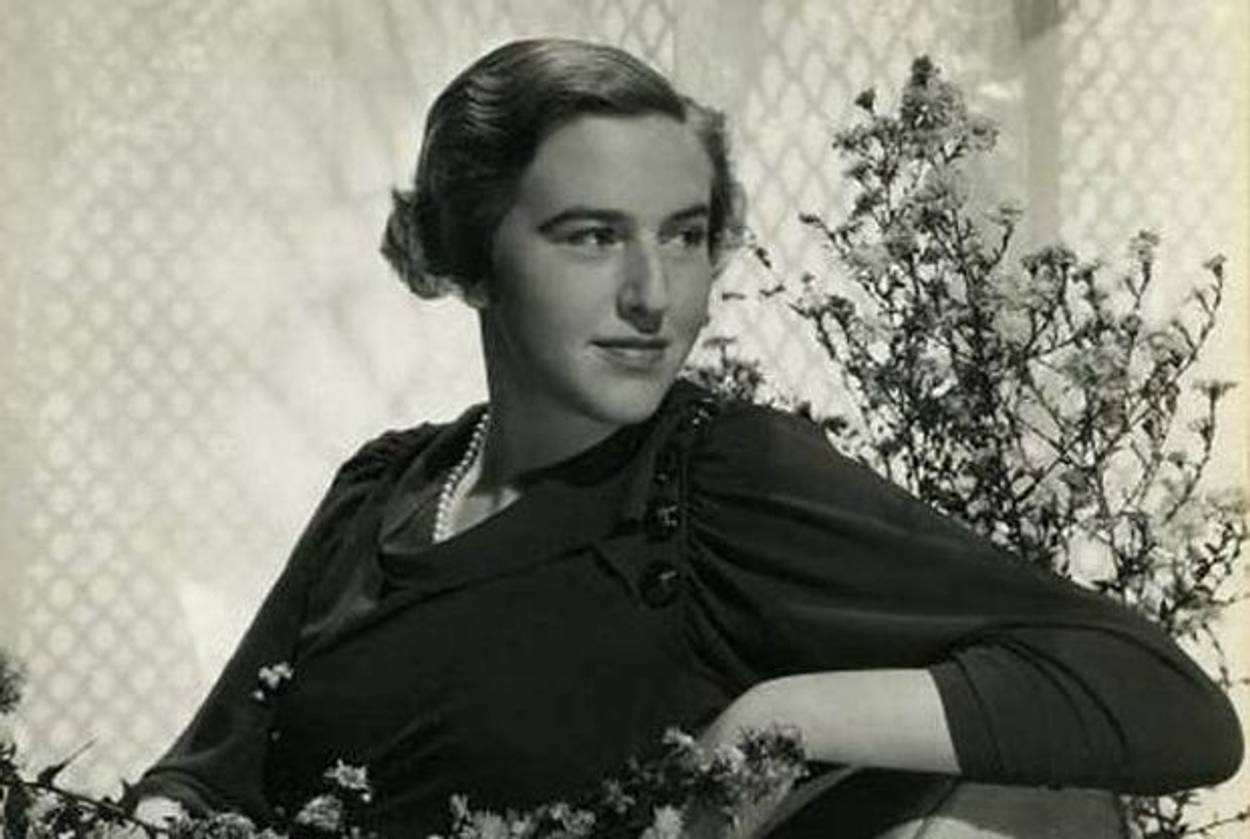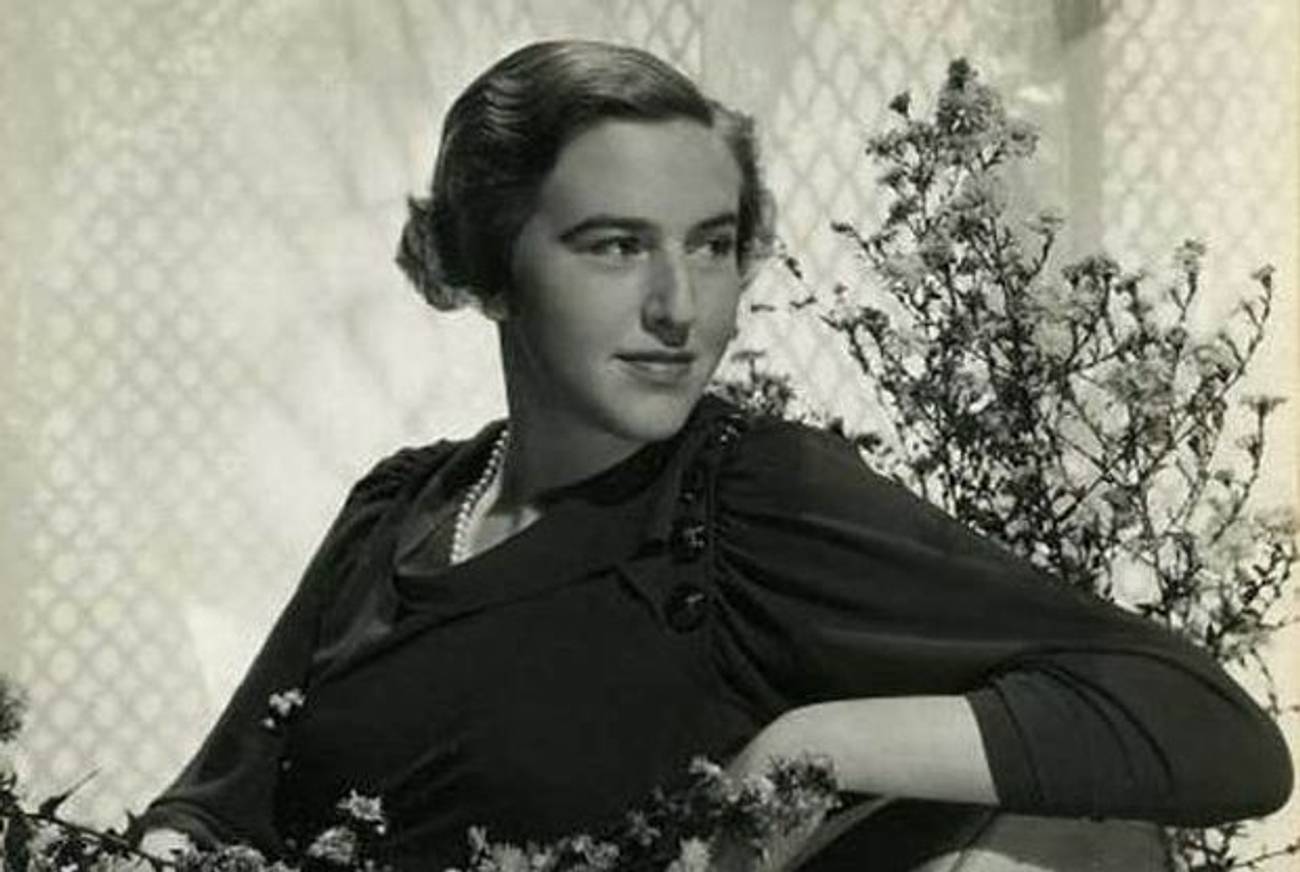Grande Dame of London Literary World Dies at 99
Lady Berlin, a French-Jewish aristocrat, was ‘the last of her generation’




Aline Elisabeth Yvonne de Gunzbourg, later Lady Berlin, died on August 25 in London at the age of 99. The youngest daughter of an aristocratic French-Jewish family of Russian descent and a remarkable woman in her own right, she was married in turn to three eminent men. Her first husband, André (“Dédé”) Strauss, was the scion of a prominent French-Jewish banking and art-collecting family; The second, Austrian physicist of Jewish origin, Hans Halban, was later an important figure in the Manhattan Project; The last was Riga-born English philosopher Isaiah Berlin. The London publishing house that her son Peter and daughter-in-law Martine founded was profiled in Tablet earlier this year.
Aline was born in 1915 in London, the fourth child of Baron Pierre de Gunzbourg. Her grandfather, Baron Horace de Gunzburg, was a banker and prominent philanthropist—he was ennobled by the Grand Duke of Hesse and the title was recognised by the Russian Tzar. The typically Francophile family split their time between the Russian capital of St. Petersburg and Paris. Aline was raised in Paris, in an apartment in the luxurious hotel particulier built by her maternal grandfather that came complete with footmen in green velvet livery. Much of her childhood was spent golfing, and she triumphed as champion at the 1934 French Ladies’ Open.
After an early marriage to Strauss, who died of cancer, Aline was widowed in her mid-twenties, several months before the commencement of World War II. The German invasion of France occurred in May, 1940 and the establishment of Pétain’s Vichy regime transpired soon after. Along with her young son Michel, she fled to the South of France and procured an improbable visa from the American consulate in Nice. After crossing the Spanish border by train, they boarded a New York bound ship from Lisbon.
In 1943, she met and married Halban, who had also fled France for England and then to North America in 1942 (upon exiting France he also took with him the entire supply of Heavy water then in allied hands). The couple settled in Montreal upon Halban’s appointment as head of an atomic research laboratory in the Canadian city. In 1946, after the birth of their elder son, Peter (their younger son Philippe was born in Oxford in 1950), Halban took an appointment at Oxford. Living in close proximity to Berlin, the philosopher became a close family friend.
This friendship developed into a romance. When Hans Halban was offered to head the building of a French nuclear laboratory in 1954, Aline declined to accompany him.
Berlin proposed to Aline several weeks later in the Oxford botanical gardens, and the two were married at the Hampstead Synagogue in 1956. They were inseparable for the next 40 years, until Berlin died in 1997. She was elegant and energetic companion to Berlin and was renowned as an regally elegant but unpretentious grande dame bestriding England’s social and academic worlds. After Berlin’s death, Aline oversaw, along with Berlin’s tireless editor Henry Hardy, the numerous posthumous publications which cemented Berlin’s reputation as a serious thinker.
Martine Halban, Aline’s daughter-in-law, remarked, ‘Aline had a long and extraordinary life, marred by great sadness in her youth but then blessed with very rewarding years later. Always generous and especially with the young, she was the epitome of how to age gracefully. She is the last of her generation and has left an indelible mark on all her family and friends.’
Vladislav Davidzon is Tablet’s European culture correspondent and a Ukrainian-American writer, translator, and critic. He is the Chief Editor of The Odessa Review and a Non-Resident Fellow at the Atlantic Council. He was born in Tashkent, Uzbekistan, and lives in Paris.